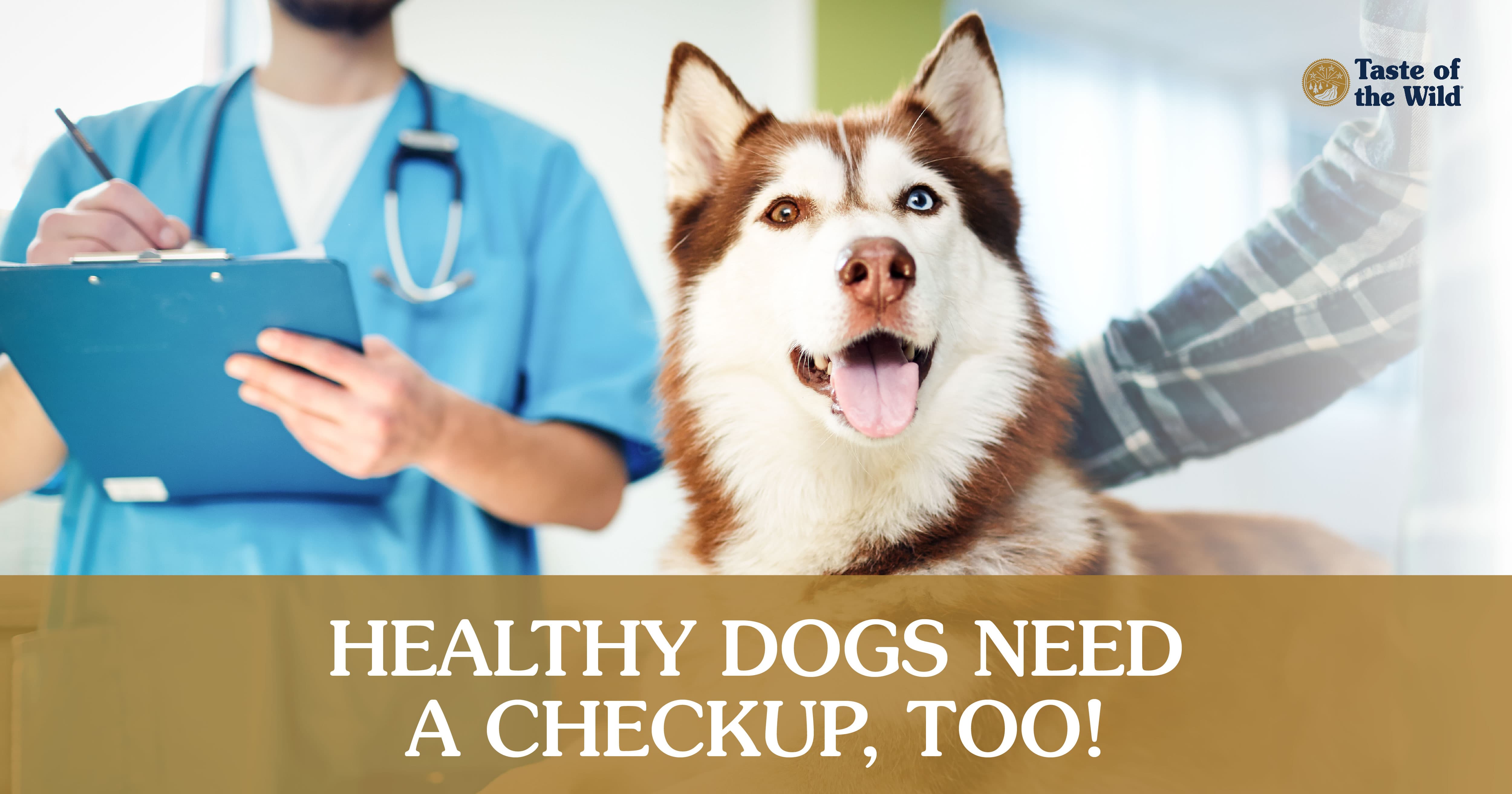
Your veterinarian has probably recommended that your dog visit the clinic at least once a year for a checkup. But if your dog appears healthy, should you still go? And what exactly is your veterinarian looking for during the exam? Here’s what to expect at your dog’s checkup.
A Healthy Dog Still Needs an Annual Checkup
If your dog doesn’t feel good, they will often try to hide their sickness or pain from you — a behavior their ancestors likely used so they wouldn’t appear weak to predators. By visiting the veterinary clinic for an annual checkup, your veterinarian can look for any health issues your dog may have that aren’t obvious to you. It also establishes a baseline for future visits and allows you and your veterinarian to keep track of your dog’s health status over time.
Most dogs that are healthy probably only need to have a checkup once a year. But your dog may need more frequent checkups, depending on their age (e.g., puppies and senior dogs), health status (e.g., dogs with a chronic disease) and breed (e.g., some breeds are more prone to certain diseases). Your veterinarian will recommend how often to bring your dog to the clinic.
During the visit, your veterinarian will ask questions to learn more about your dog’s history, perform a physical examination and possibly perform routine laboratory or screening tests. This information can help your veterinarian determine if your dog has a disease in an early stage that isn’t showing obvious symptoms yet (e.g., diabetes, chronic kidney disease) or if they have an infectious disease (e.g., Lyme disease, heartworm disease).
Tell Me About Your Dog
To help your veterinarian get a complete picture of your dog’s health, they will ask you some questions about your dog’s behavior, bathroom habits, nutrition, general health and exercise routines (among others). It may be useful to think about the answers to these questions ahead of time so you are ready to answer them at the clinic.
This is also a great time for you to ask any questions you have about your dog. Is there a behavior you would like to curb but need some help on how to do it? Do you have questions about which food your dog should be eating or how much they should be eating? Writing them down before your dog’s appointment can help you remember what to ask while you’re there.
Let’s Get Physical
Part of the examination will include palpating (feeling around) your dog’s body to check for any issues with their skin, coat, mouth (teeth and gums), eyes, ears, abdomen, muscles (and how they walk) and their general condition. While they’re looking your dog over, they will also check for external parasites (e.g., ticks, fleas or mites). Your veterinarian will listen to your dog’s heart and lungs to make sure they’re healthy, take their temperature and also check that your dog’s weight and body condition score are in a healthy range for their age and breed.
What’s Going on Inside Your Dog?
A physical examination can help your veterinarian check for external problems, but laboratory tests may be recommended to check for issues that your veterinarian can’t see. They may recommend collecting blood, urine, fecal or other samples from your dog to get a more complete picture of your dog’s health. They may also ask you to bring a fecal sample to the appointment so they can check for intestinal parasites (e.g., hookworm, roundworm, tapeworm).
If your dog has a medical condition, they can use the results of these laboratory tests and also the physical examination to check how the condition is progressing and if any adjustments to the treatment plan are needed.
It’s Booster Time
There are two vaccine types that your dog can receive — core and non-core vaccines. Core vaccines are considered essential for all dogs due to the exposure risk of the disease it protects against, the disease severity and its ability to be transmitted to humans. Non-core vaccines are not essential for all dogs and will be recommended by your veterinarian depending on your dog’s age, geographic location, risk of exposure and lifestyle.
Boosters are typically required for core vaccines 12 months after the last vaccination, so your dog’s annual checkup is the perfect time for these boosters. Some vaccines may have different schedules; for example, there is a rabies vaccine that can be given every three years instead of every year. Your veterinarian will determine which vaccines your dog needs and how often they are needed.
Help Make the Clinic Visit a Happy One
Dogs can become stressed about visiting the veterinary clinic, but there are things you can do to help them remain calm — including staying calm yourself. Your dog could pick up on any anxiety you’re feeling and feel less secure themselves, so try to keep a positive, relaxed demeanor before, during and after the visit. It may also help to stop by the veterinary clinic for a social visit occasionally so that your dog doesn’t associate the clinic only with examinations, laboratory tests or other procedures. If they’re lucky, they may get a treat for visiting, too!
Hopefully your dog’s annual checkup will end with a “You’re all good. See you next year!” But if your veterinarian does have some concerns, they may recommend further testing, a change of diet, a lifestyle change or starting/changing prescription medication — all with the goal of keeping your dog healthy and ready for more adventures with you.
RELATED POST: Are Pet Wellness Plans Worth It?
The information in this blog has been developed with our veterinarian and is designed to help educate pet parents. If you have questions or concerns about your pet's health or nutrition, please talk with your veterinarian.
